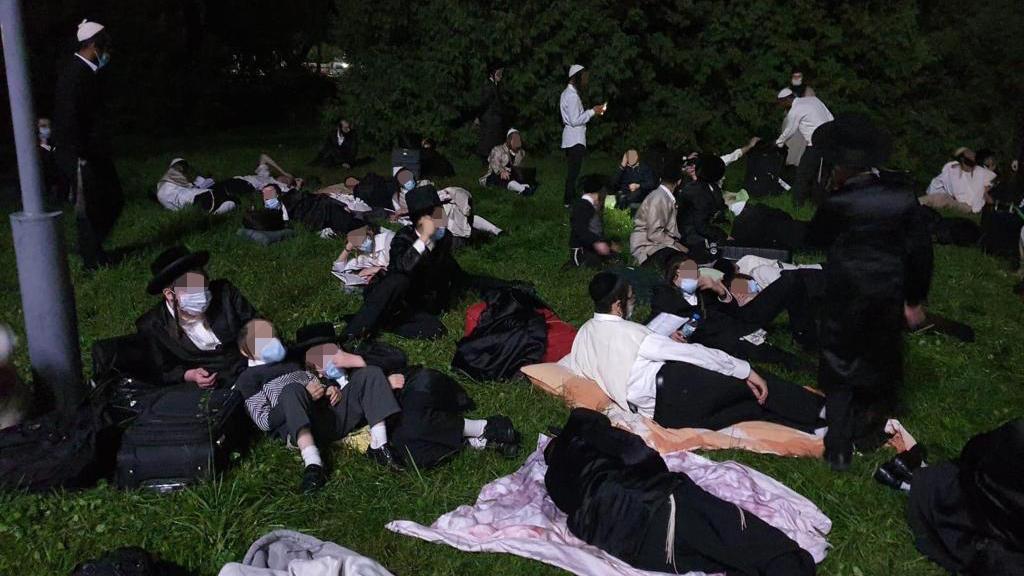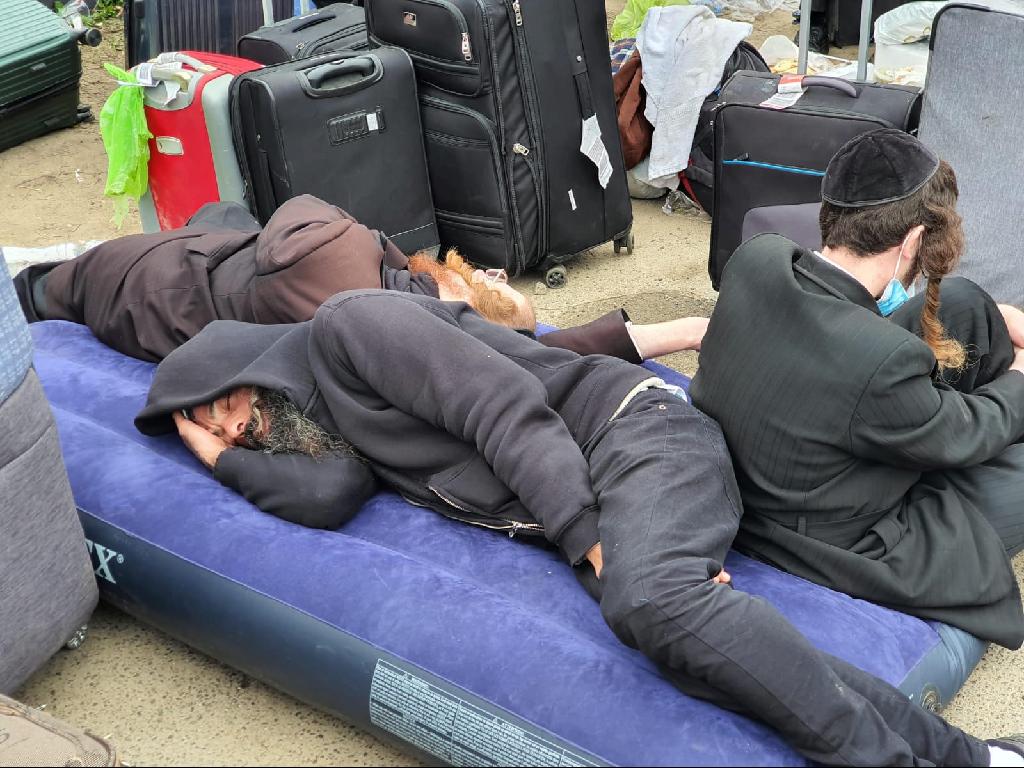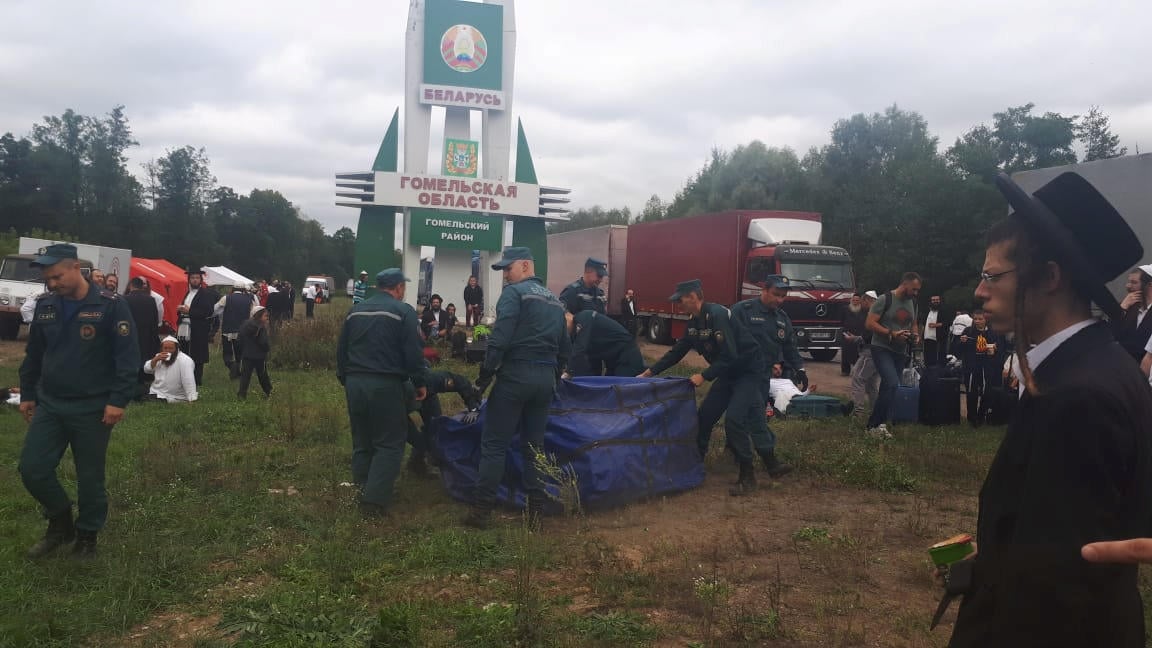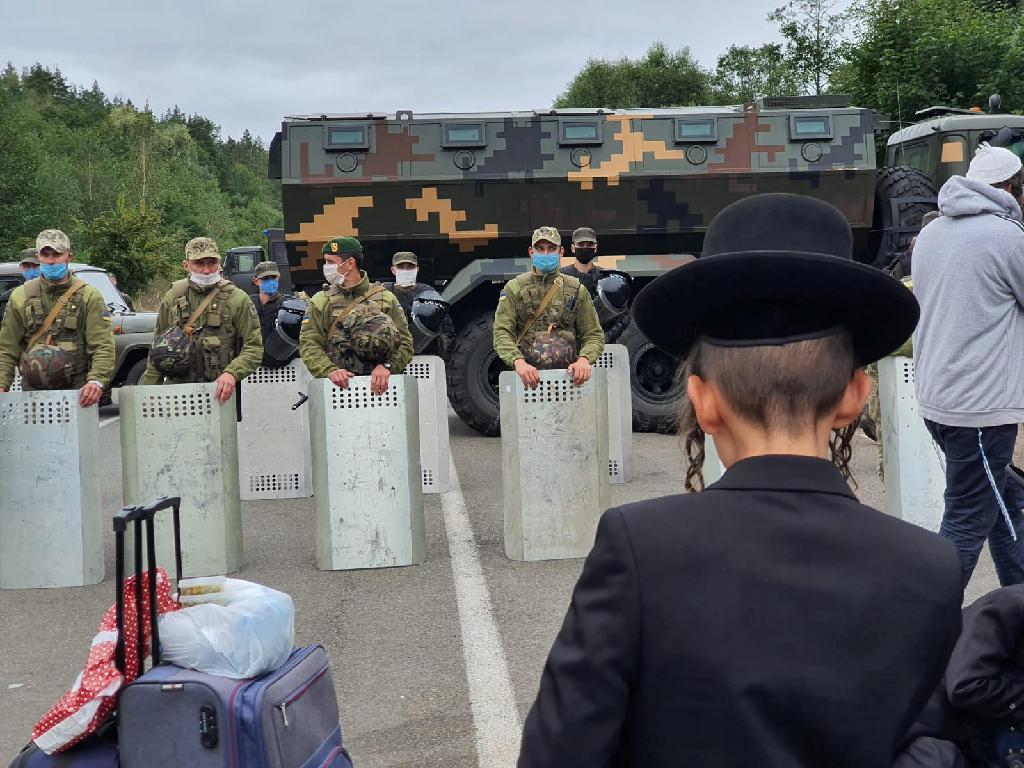Hundreds of Hasidic Jews who set off on a pilgrimage to Ukraine despite coronavirus restrictions were stuck at a border crossing on Tuesday after Belarusian border guards let them through but officials on the Ukraine side would not let them in.
Wearing traditional dress and carrying suitcases, the pilgrims, who included children, stood and sat along the highway in the neutral zone between parked trucks.
4 View gallery


Jewish pilgrims who were denied entry to Ukraine from Belarus gather at Novi Yarylovychi crossing in the Chernihiv Region
Every Jewish New Year, tens of thousands of Hasidic Jews make the pilgrimage to the central Ukrainian town of Uman to visit the grave of Rabbi Nachman of Breslov, who revived the Hasidic movement and died in 1810.
This year, Jewish New Year celebrations run from Sept. 18-20.
"I spent the night on the bus, but most of them spent the night right on the road, some gathered branches from the forest and lit fires," said one pilgrim, who gave only his first name Benjamin, in a phone call from the restricted zone on Tuesday morning.
"We have no food or water," he said.
The Ukrainian border guards said they had been forced to stop traffic on Monday night at the crossing at Novi Yarylovychi between Belarus and northern Ukraine because the pilgrims were blocking the way.
By early Tuesday afternoon, some three dozen waiting trucks had moved through and more than 100 police officers and national guardsmen were setting up tents for the pilgrims for the night.
"The situation is under control," Ukrainian border guard official Oleksander Pavlik told reporters, adding that the pilgrims had been given food and water.
The Foreign Ministry in Jerusalem said that the Israeli embassies in Ukraine and Belarus were working with the authorities in both countries to ensure the provision of humanitarian supplies to those currently stuck between on the border.
“We call on those Israelis who are there to turn back and leave Belarus for Israel as soon as possible,” the ministry said.
No exclusion for pilgrims
Ukraine, which has recorded high numbers of new coronavirus cases in recent weeks, imposed a ban on the entry of foreigners from August 26 to September 28 due to the epidemic.
It said the ban was partly in response to a plea from Israel, where many of the pilgrims come from, to limit the event, for fear it would be a coronavirus hotspot.
"I don't know who promised to whom the passage of 3,000 citizens," the head of Ukraine's border service Serhiy Deineko told the group on the border. "You were deceived."
The Belarusian border guard service said there were 734 people in the group, including 40 children under 12. One of the pilgrims said they had been promised by Belarusian and Ukrainian officials they would be allowed to enter Ukraine.
Pilgrims are not among exceptions to Ukraine's ban on movement and its foreign ministry urged all travelers to respect the rules to avoid difficulties at checkpoints.
It also asked the Belarusian side not to register people to cross who are not allowed into Ukraine.
BelTa state agency quoted Belarusian authorities said they allowed returning pilgrims back and said numbers were growing.
"All of them... are awaiting a decision on admission by the Ukrainian side," it said. "As of the morning of September 15, the work of the Ukrainian checkpoint... has not been resumed."
The Ukrainian authorities said Belarus had allowed 200 more pilgrims into the border area since Tuesday morning.
The Rabbi Nachman Foundation issued a statement saying it had asked Ukrainian officials to allow the pilgrims to come.
"Therefore, in this situation, we ask you to make an exception and let them into Ukraine," the statement said.




